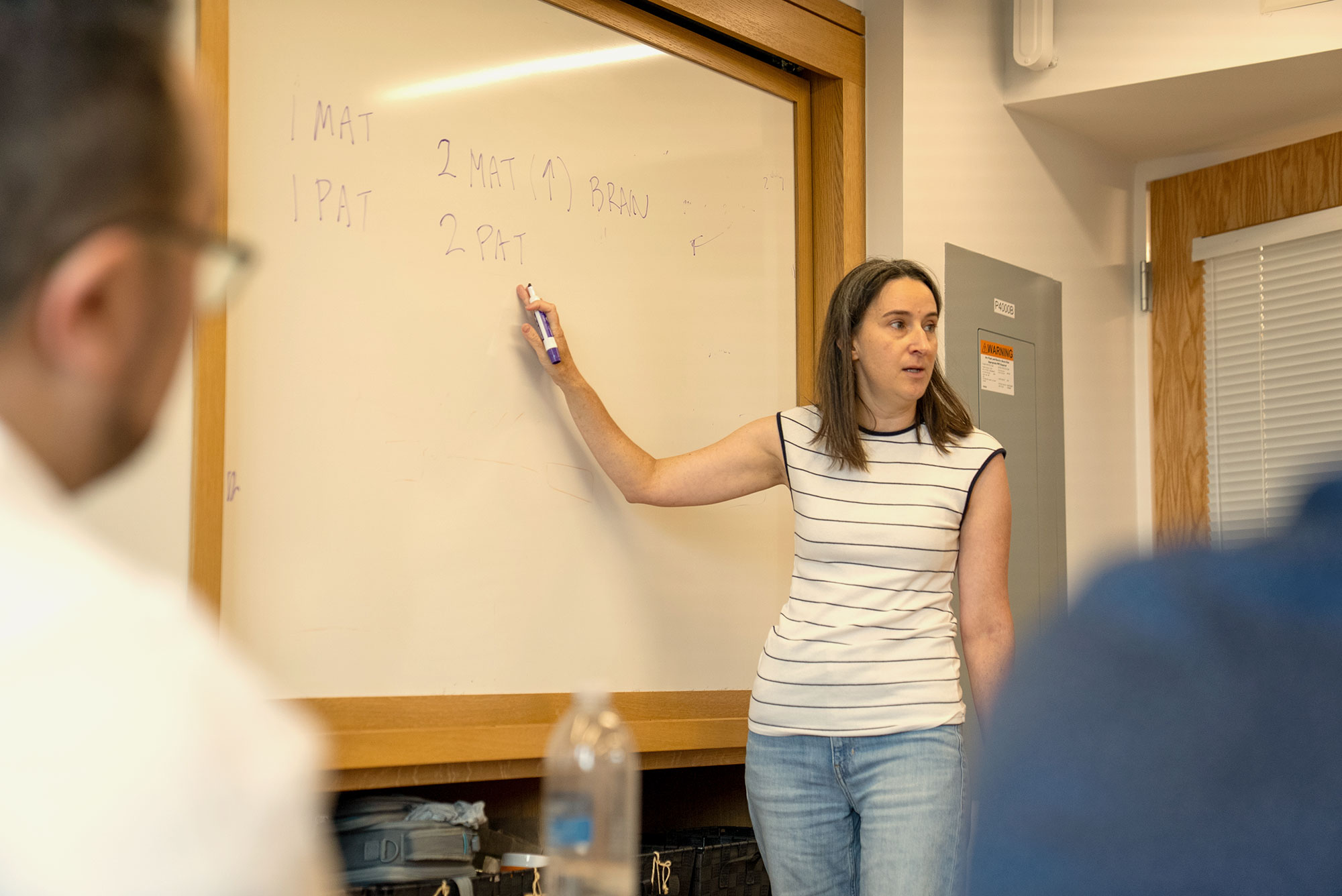Topics in Biomedical Science Certificate Overview
Learn new scientific approaches and explore cutting-edge topics in the areas of proteomics, genomics, epigenetics, and immunology in the Biomedical Science Graduate Certificate. Through your biomedical graduate studies, you will gain a deeper understanding of human biology and the underlying pathophysiology of disease — from the molecular to the organismal level.
The courses will enable you to:
- Learn the pathophysiology of medical disorders such as diabetes, heart disease, and infertility.
- Explore how cutting-edge advances in biology could impact the development of new or improved diagnostics, therapeutics, clinical practices, and public health policies.
- Acquire knowledge of the role of stem cells in terms of molecular, cellular, and potential therapeutic properties.
- Understand the neuroscience of pain, emotions, and psychiatric illnesses.
Courses
To earn the certificate, you complete four biomedical science courses.
Core Courses
You take at least two core courses, but you may complete up to four.
Example core courses:
- BIOS 65C Clinical Anatomy and Physiology I
- BIOS 65D Clinical Anatomy and Physiology II
- BIOS 10 Biochemistry
- BIOS 12 Molecular Biology
- BIOS 14 Principles of Genetics
- BIOS 50 Neurobiology
- BIOS 60 Immunology
- BIOS 67 Pharmacology
- BIOS 155 Medical Microbiology
Elective Courses
You may select up to two courses. Elective courses are not required.
Example elective courses:
- BIOS 11 Medical Terminology
- BIOS 107 Introduction to Medical Neuroscience
- BIOS 150 The Biology of Cancer
Searching and Registering for Courses
Available course options vary by term. You can browse options for fall, spring, or summer in the certificate course search within the DCE Course Search & Registration platform.
Earning Your Certificate
If you take two courses per semester, you can complete your certificate in 8 months. If you prefer a more flexible pace, you have up to three years to finish. There is no formal application required.
To meet the requirements of the Biomedical Science Certificate, you must:
- Complete the four certificate courses for graduate credit.
- Earn at least a B grade in each course.
- Complete the courses within three years.
Learn more about pursuing a certificate and the process of requesting your certificate.
Stack Your Certificate Into a Degree
Stackable credential pathways allow you to earn multiple credentials by completing courses that meet overlapping requirements. In the short term, you can earn your biomedical certificate. Once completed, those four courses may put you a third of the way toward earning a master’s degree in biology.
This stackable pathway offers an efficient, cost-effective way to earn short-term credentials to help fill immediate skill gaps and acquire specialized knowledge while building a foundation for long-term success that showcases your expertise in the field of biology.
Learn how to plan a stackable credential pathway.
Cost
Affordability is core to our mission. When compared to our continuing education peers, it’s a fraction of the cost.
| Our Tuition (2025–26 rate) | $3,440 per course |
|---|---|
| Average Tuition of Peer Institutions | $5,476 per course |
| Average Total Cost | $13,760 |
Certificate FAQs
How will this graduate certificate help me in my career?
The flexibility of this graduate certificate allows students to choose their path. Whether it is in preparation for advanced study in the sciences, or additional expertise within a particular area of the field, students start with foundational biomedical topics and then move on to advanced courses in a variety of areas such as epidemiology, sports physiology, cardiovascular pathology, and stem-cell biology.
What kinds of jobs might I be qualified for after completing this graduate certificate?
Upon completion of this graduate certificate, participants may be qualified for jobs such as clinical researcher, laboratory technician, quality assurance technician, laboratory scientist, regulatory affairs specialist, bioengineer, pharmaceutical scientist, and science writer.
